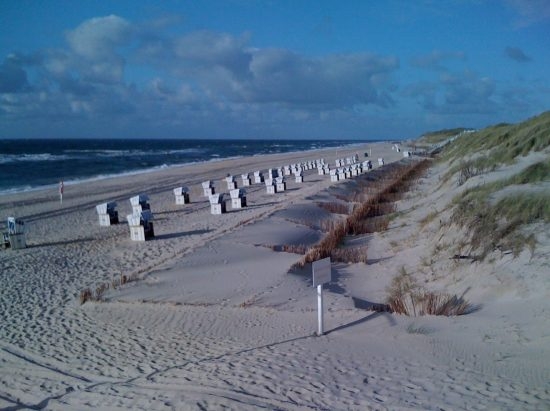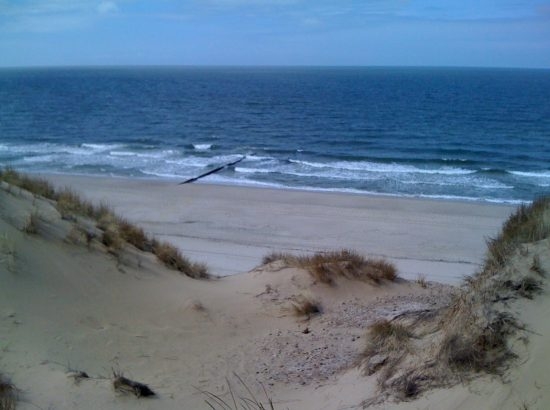
© The North Sea island of Sylt. A few kilometres west lies Sylt Outer Reef, a nursery for porpoises. (c) Olaf Klodt

© The North Sea island of Sylt. A few kilometres west lies Sylt Outer Reef, a nursery for porpoises. (c) Olaf Klodt
Environment groups call for more effective marine protection
March 18, 2016
German environmental organisations have called for a more effective level of marine protection in the North and Baltic Sea by Federal Minister of Food and Agriculture Christian Schmidt and Federal Environment Minister Barbara Hendricks.
In a joint statement, they highlighted the need for stricter rules to be applied to NATURA 2000 fisheries in marine-protected areas within the Exclusive Economic Zone (EEZ) in the future. The official procedure of participation regarding the measures proposed by the Environment and Agriculture Ministry will run till March 22nd.
According to them, the current measures are insufficient to provide protection to the porpoise (the only German whale) and rare stone reefs and sandbanks, and that human activities like destructive fishing methods must be banned in at least half of the protected areas.
The environmental groups concerned are BUND, Deep Wave, DNR, DUH, Greenpeace, NABU, protection Wattenmeer, Whale & Dolphin Conservation and WWF.
They are critical of the lack of measures directed at the Baltic Sea Protected Areas, as well as the proposed measures for the North Sea's Sylt Outer Reef with Amrum Bank (which, incidentally, is the nursery area for the harbour porpoises). They are also calling for stricter measures pertaining to fishing activities in protected areas, such as prohibiting the use of bottom trawls which damage the seabed or gillnets in which countless seabirds and dolphins end up as bycatch. The associations reiterate that only with the establishment of fishing-free zones can nature reserves fulfill their functions as refuges for threatened species and natural habitats.
No damaging fishing methods in nature reserve
Another point of criticism is the fact that the German brown shrimp (Crangon crangon) fisheries at the eastern part of the Sylt Outer Reef are exempted from having to comply with the guidelines, even though their fishing methods are environmentally destructive. To this, the organisations commented that the exception for the brown shrimp industry had thwarted the word "reserve", as the bottom trawls they use are damaging to the seabed. For them, the impact of applying the guidelines to them would actually be minimal, as the amount of catch generated at this location comprises less than three percent of their annual catch quantity.
The report, drafted by the German government's joint recommendations for fisheries management will be sent to the European Commission and the EU member states who conduct fishing activities in the North Sea. This latter group includes Denmark, the Netherlands, Great Britain, Belgium and France. Before the measures are implemented in Germany, all the countries must agree to the proposal.
As for the environmental groups, they fear a further softening of measures in the forthcoming European process. A spokesperson for the organisations said that the fishery industry had too often prevailed against the interests of applicable conservation law enforced at the EU level, hence for this time, the federal government may not agree to any political minimum consensus in the negotiations.